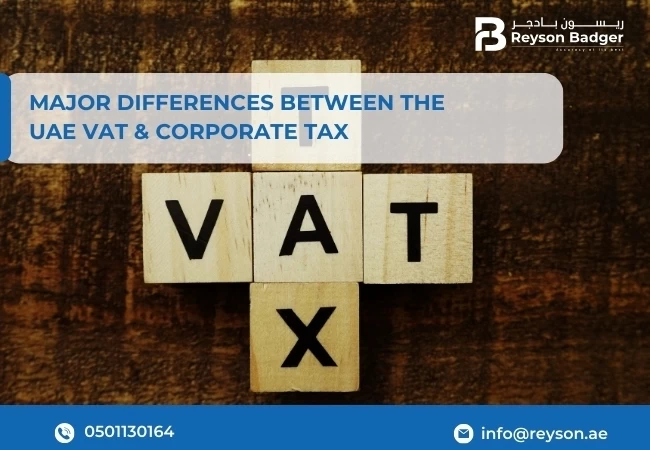

The United Arab Emirates (UAE) has implemented two significant tax reforms in recent years: Value Added Tax (VAT) and Corporate Tax. Introduced in 2018, VAT is a consumption tax levied on the value added to goods and services, while Corporate Tax, slated to come into effect in 2024, is a direct tax on the profits of businesses. Understanding the differences between these two taxes is crucial for businesses operating in the UAE, as it can significantly impact their financial planning, compliance, and overall competitiveness. In this article, we will delve into the key differences between UAE VAT and Corporate Tax, providing businesses with a comprehensive guide to navigate these tax reforms effectively.
Value Added Tax (VAT) is a consumption tax levied on the value added to goods and services in the United Arab Emirates (UAE). It was introduced on January 1, 2018, as part of the UAE's efforts to diversify its revenue streams and reduce its dependence on oil.
Definition and Scope of VAT
UAE VAT is a multi-stage tax that applies to most goods and services, including imports. It is levied on the value added at each stage of production and distribution, from raw materials to final consumption. The scope of VAT includes:
The standard rate of UAE VAT is 5%. However, some goods and services are zero-rated or exempt.
Businesses with an annual turnover above AED 375,000 must register for VAT, while those with a turnover between AED 187,500 and AED 375,000 have the option to register voluntarily.
Registered businesses must submit VAT returns and make payments to the Federal Tax Authority (FTA) on a quarterly basis. The due date for submitting VAT returns and making payments is the 28th day of the month following the end of the tax period.
UAE Corporate Tax is a direct tax levied on the profits of businesses operating in the United Arab Emirates (UAE). It was announced in January 2022 and is expected to come into effect for financial years starting on or after June 1, 2023.
UAE Corporate Tax applies to all businesses and commercial activities conducted in the UAE, including:
The scope of Corporate Tax includes:
The standard rate of UAE Corporate Tax is 9%. However:
Businesses with revenues exceeding AED 3.75 million must register for Corporate Tax. Businesses with revenues below this threshold may choose to register voluntarily.
Registered businesses must submit Corporate Tax returns and make payments to the Federal Tax Authority (FTA). The due date for submitting Corporate Tax returns and making payments will be announced by the FTA.
| Differences | UAE VAT | UAE Corporate Tax |
| Tax Base | Consumption tax is levied on the value added to goods and services. | Direct tax levied on the profits of businesses. |
| Tax Rate | The standard rate of 5%. | The standard rate of 9%, with a 0% rate for small businesses and startups (subject to conditions). |
| Registration Threshold | Mandatory for businesses with an annual turnover exceeding AED 375,000. | Mandatory for businesses with revenues exceeding AED 3.75 million. |
| Returns and Payments |
Quarterly returns and payments are |
Annual returns and payments, due date to be announced by the Federal Tax Authority (FTA). |
| Scope and Applicability | Applies to most goods and services, including imports. | Applies to all businesses and commercial activities conducted in the UAE, including free zone companies (with some exceptions). |
| Compliance and Administration | Businesses must maintain accurate records, submit returns, and make payments on time. | Businesses must maintain accurate financial records, submit annual returns, and make payments on time. |
Conclusion
UAE has two main taxes: VAT and Corporate Tax. They each have different rules, rates, and ways to register. It's really important for businesses in the UAE to know how these taxes work. This ensures their compliance and prevents penalties.
At Reyson Badger, we help businesses understand UAE tax laws. We make it easier to handle UAE VAT and Corporate Tax. When you work with us, you can make sure you're meeting your tax duties. Plus, you can find ways to save on taxes. That way, you can focus on growing your business in the UAE.